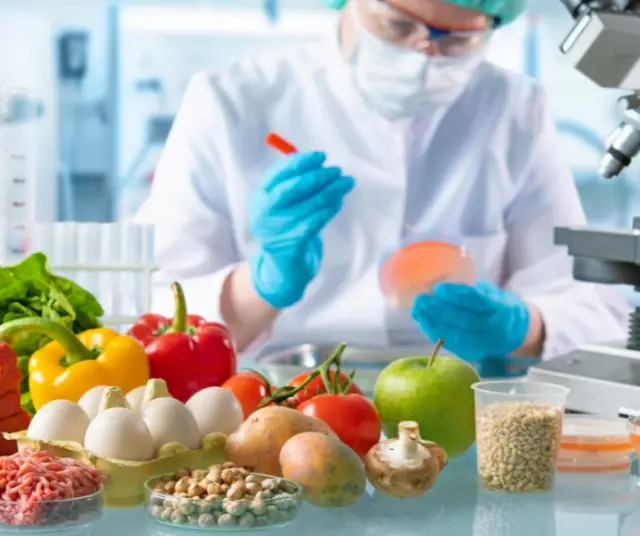June 7 each year marks World Food Safety Day, a global initiative that seeks to raise awareness of the critical importance of ensuring food safety for public health and global food security. This day, sponsored by the Food and Agriculture Organization of the United Nations (FAO) and the World Health Organization (WHO), provides a platform to address critical issues related to food safety and promote safe practices in the entire food chain.
History and Context
World Food Safety Day was established in response to growing global concern about the risks associated with food contamination and the spread of foodborne illnesses. The globalization of the food chain has led to food traveling long distances and going through various stages of production, processing, storage and distribution. This has increased the complexity of ensuring food safety and has highlighted the need for robust international standards and practices.
The first World Food Safety Day was celebrated in 2019, and since then it has been an annual reminder of the importance of addressing emerging challenges and persistent threats related to food security. The date of June 7 was chosen to commemorate the approval in 1963 of the General Agreement on Tariffs and Trade (GATT), the precursor of the current World Trade Organization (WTO). This agreement established the basis for international food trade standards and laid the foundation for international cooperation in the field of food safety.
Current Challenges in Food Safety
Despite significant advances in food security in recent decades, considerable challenges still exist. Contamination of food by pathogenic microorganisms, toxic chemicals and environmental contaminants remains a major threat to public health. Additionally, antimicrobial resistance, supply chain globalization, and changes in dietary patterns add additional layers of complexity to food safety management.
Rapid urbanization and increasing demand for food also pose challenges to the production and distribution of safe food on a global scale. The need to balance efficient production with ensuring food safety is a constant dilemma, and World Food Safety Day serves as a reminder of the need to address these issues collaboratively.
Importance of Food Safety in Public Health
Food safety is an essential component of public health. Foodborne illness outbreaks can have devastating consequences for people's health and a country's economy. Food poisoning not only causes human suffering, but also generates significant costs in terms of healthcare, loss of productivity and reputational damage to food industries.
Ensuring food safety is crucial to preventing the spread of infectious diseases and protecting the health of communities. Implementing proper hygiene and food handling practices at all stages of the food chain is essential to minimize risks and ensure that food reaches consumers safely.
The Role of Governments and International Organizations
Governments play a critical role in establishing and enforcing food safety regulations and standards. Creating strong regulatory agencies, regularly inspecting food facilities, and taking corrective action are essential to protecting public health. Furthermore, international cooperation is crucial to address cross-border challenges related to food security.
International organizations such as FAO and WHO play a crucial role in providing guidance, sharing information and fostering collaboration between countries. Harmonizing standards and promoting safe practices in food production, processing and distribution are key aspects of international efforts to improve food safety.
Innovation and Technology in Food Safety
Technology plays an increasingly important role in improving food safety. From tracking and traceability systems that track food provenance to processing technologies that reduce contamination risks, innovation plays a vital role in creating safer and more efficient food systems.
Advances in contaminant detection, biotechnology applied to food production and digital solutions for supply chain management are helping to address emerging challenges in food safety. On World Food Safety Day, it is crucial to highlight the importance of adopting these technologies responsibly and ethically to ensure they positively contribute to food safety and quality.
Consumer Responsibility for Food Safety
Consumers also play a fundamental role in food safety. Education about proper food handling, the importance of hand washing, and the need to cook food to safe temperatures are key elements in preventing foodborne illness in the home.
Additionally, awareness of where food comes from, reading labels, and choosing products from trusted suppliers can help encourage safe practices in the food chain. On World Food Safety Day, it is essential to remember that every individual plays a role in creating a safer and more sustainable food system.
The Future of Food Safety
As we face ever-changing environmental, demographic and health challenges, food security becomes an even greater priority. Adopting sustainable approaches to food production, waste management and food distribution is essential to ensure we can feed a growing population safely and equitably.
Continued research in areas such as food security, disease resistance and improving agricultural practices will play a key role in creating more resilient food systems. Global collaboration, investment in infrastructure and the application of innovative technologies are crucial elements to address future challenges and ensure a secure and sustainable food supply.
Food safety is not just the responsibility of governments and industries, but of each individual who chooses what they put on their plate. As we move into the future, it is essential that we continue to collaborate locally and internationally to address emerging challenges and work together towards a more secure, sustainable and equitable global food system.
